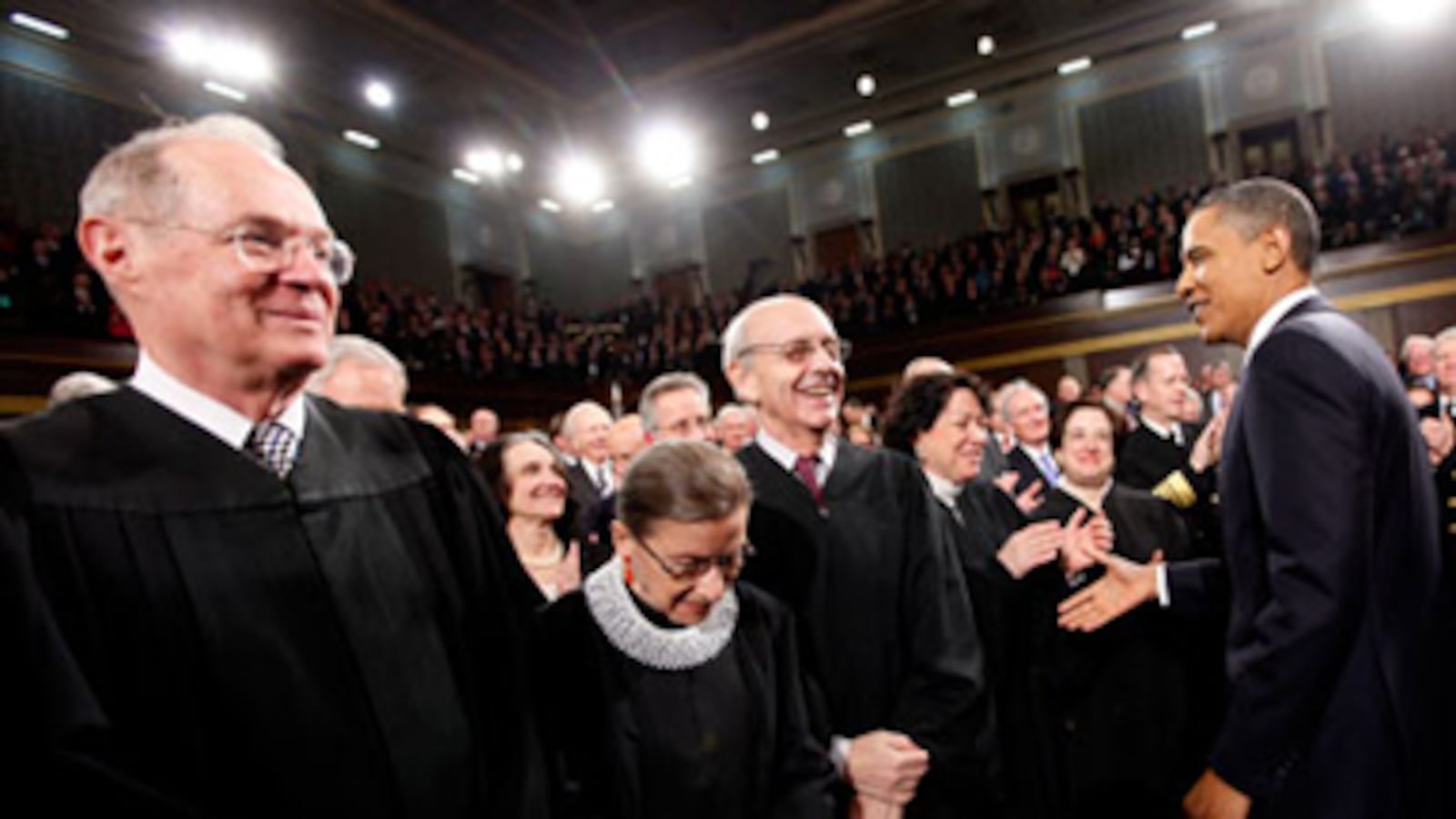Paul Ryan’s Republican response to the State of the Union speech did himself and his party good. Lloyd Grove on what Ryan got right—and why Bachmann bombed. Plus, more Daily Beast contributors weigh in on the speech.
The curse of Bobby Jindal had no power over Wisconsin Rep. Paul Ryan as he delivered the official Republican response Tuesday night to President Obama’s State of the Union speech.
Unlike the youthful governor of Louisiana—whose hapless rebuttal of Obama’s February 2009 address to Congress eroded his prospects for national office (and prompted wags to compare him to Kenneth the Page from 30 Rock)—the 40-year-old Ryan, chairman of the House Budget Committee, projected himself as a serious-minded leader who is going places.
Photos: The State of the Union

Some very dark places, if one accepts the Democratic critique of his policy prescriptions—namely Ryan’s “Roadmap for America’s Future” that, his adversaries argue, amounts to slash-and-burn solutions to cut entitlements for the poor and elderly, privatize Social Security, and otherwise undo the New Deal and the Great Society in order to discipline the deficit and venerate the wealthy.
None of those bothersome issues came up as Ryan spoke to viewers from the House Budget Committee hearing room. “Optics matter, and for the Republican Party, Paul Ryan did them a lot of good tonight,” CNN’s Candy Crowley opined post-speech. “One of the smartest Republicans up there,” Wolf Blitzer chimed in.
• Watch the 7 Best SOTU Moments • More SOTU reactionsAn imperially slim man with a boyish face, blessed by a shiny mane of rich, black hair, lending him the aspect of a 1930s movie actor, Ryan cloaked his criticism of Obama in generous-sounding words and a reassuring half-smile, like a youthful family doctor sitting at America’s bedside, gently patting the nation’s collective hand and cushioning his bad news with a look of blue-eyed concern.
Dr. Ryan’s diagnosis: Federal spending is out of control and if nothing is done, “the next generations will inherit a stagnant country and diminished economy.” President Obama might not be responsible for the “severe economic and fiscal situation” he confronted on taking office, but he “plunged us deeper into debt,” and his health-care reform law “is accelerating our country toward bankruptcy.”
Ryan promised that his party will offer “a better choice and different vision” involving a “vital and limited” government. It all sounded fabulous, but he only had 10 minutes, so there was very little time to get into specifics. The likely impact of Ryan’s speech will be not so much to persuade the general population but more to elevate Ryan into the top tier of GOP presidential and vice-presidential prospects—despite (and possibly because of) Ryan’s persistent claims that he has zero interest in national office.
The likely impact of Ryan’s speech will be not so much to persuade the general population but more to elevate Ryan into the top tier of GOP presidential and vice-presidential prospects.
The same cannot be said of Minnesota Rep. Michele Bachmann, the sharp-tongued lady of the Republican fringe who followed Ryan on CNN (but not on Fox or MSNBC) to give the Tea Party’s response to the president’s speech. Wearing her ambition on the sleeve of her royal blue jacket, Bachmann blamed Obama for every terrible thing—“we have high unemployment, devalued housing prices, and the cost of gasoline is skyrocketing,” she said at one point.
In contrast to Ryan’s—and, for that matter, Obama’s—sober delivery, Bachmann was cheerily hyperactive in her six-minute speech-cum-PowerPoint presentation, and her boldly sketched rhetoric was matched by her heavy eye makeup.
Alas, for much of her performance, she was looking not at the viewers at home, but somewhere off to the right.
Shushannah Walshe contributed to this report.
Lloyd Grove is editor at large for The Daily Beast. He is also a frequent contributor to New York magazine and was a contributing editor for Condé Nast Portfolio. He wrote a gossip column for the New York Daily News from 2003 to 2006. Prior to that, he wrote the Reliable Source column for the Washington Post, where he spent 23 years covering politics, the media, and other subjects.





